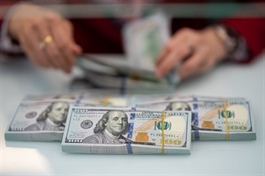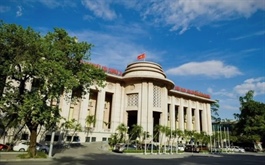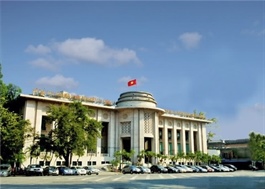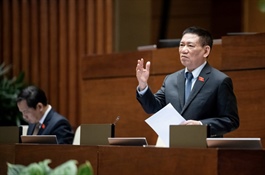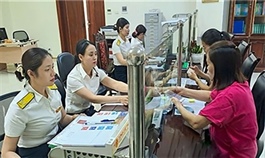Exchange and interest rates forecast to remain stable after US election
Exchange and interest rates forecast to remain stable after US election
Experts believe that Vietnam's economic fundamentals are strong enough to withstand the volatility stemming from the US presidential election results.

The new occupant of the White House emphasises a trade policy pledge to uphold strict measures, including higher tariffs on Chinese goods and the potential extension of these tariffs to other countries.
Donald Trump’s plan highlights US manufacturing and energy production as top priorities with proposed tariffs of 60 per cent on goods from China and 10 to 20 per cent on goods from everywhere else.
Vietnam, with its highly open economy, where trade turnover constitutes 158 per cent of GDP, the US is the largest export partner with trade surplus of $83 billion, and China the largest import partner with trade deficit of $49 billion, will be impacted by the US election outcome.
According to a macroeconomic report by ACBS Research released just before the US presidential election results were finalised, VND is likely to face greater depreciation pressure when Trump wins the election and implements his economic policies, as these would primarily strengthen the USD.
This situation would limit Vietnam's monetary policy space, negatively affecting the overall economy and the profitability of the banking sector in particular. In the short term, Vietnam’s exports to the US could face obstacles if Trump enforces tariffs on all goods, as he has announced.
“Key export sectors, including seafood, tires, and steel, may encounter immediate difficulties due to tax policies and, in the long run, may see reduced demand if US import prices rise sharply. Nevertheless, these challenges could be somewhat mitigated if Vietnamese companies capture market share from China.”
“Looking further ahead, the US strategy to lessen dependence on Chinese goods remains consistent across recent administrations, likely fueling a continued shift of foreign direct investment (FDI) from China to neighbouring countries. This trend is expected to drive Vietnam’s FDI growth, benefiting companies involved in industrial real estate, transportation, and warehousing as production output rises,” stated in ACBS Research report.
From a different perspective, Dinh Duc Quang, head of treasury and global markets at UOB Vietnam, forecast that the US election results will have a minimal impact on VND interest rates. This is due to the tightly regulated nature of Vietnam’s currency within the framework of long-term trade and investment rather than short-term investment or speculation.
“In terms of interest rates, regulatory bodies are unlikely to adjust key policy rates, including the refinancing rate, rediscount rate, and the deposit rate cap. Instead, they will flexibly utilise commercial intervention rates, such as Treasury bill rates and open market operation rates, to maintain short-term 3-month deposit rates around 3-4 per cent and 12-month rates at 5-6 per cent,” said Quang.
According to Quang, Vietnam’s ability to maintain major economic balances, a trade surplus, increased foreign investment, remittances, and tourism growth will support the exchange rate, keeping fluctuations around 3 per cent annually.
“Specifically, projections for the exchange rate are VND25,200 in Q4/2024, VND25,000 in Q1/2025, VND24,800 in Q2/2025, and VND24,600 in Q3/2025,” he added.
Supporting this view, Frederic Neumann, chief Asia economist at HSBC, stated that Vietnam's economic fundamentals appear resilient enough to navigate such fluctuations.
“While Trump may not heavily rely on tariffs, he might adjust monetary policy. However, in my view, Vietnam’s economy will not be significantly affected, as it is capable of adjusting to exchange rate fluctuations of around 10-20 per cent. Additionally, exchange rate pressures have an upside; while exports may slow, domestic demand could increase,” he said.




